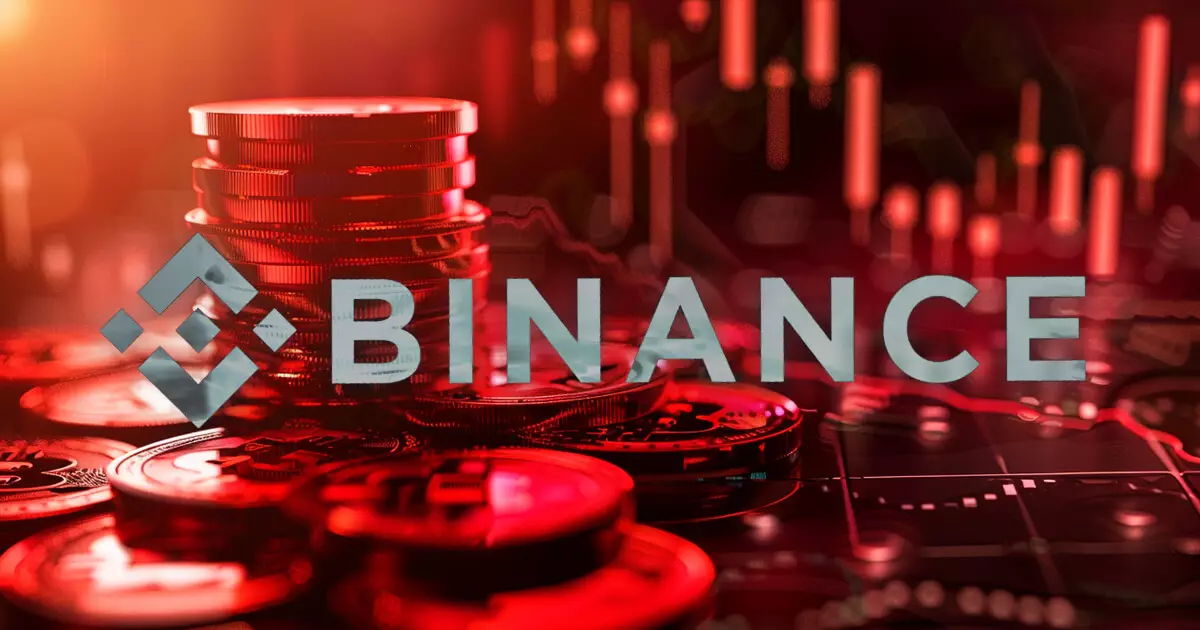In recent weeks, the cryptocurrency community has voiced serious concerns regarding Binance, the world’s largest cryptocurrency exchange by trading volume, following its unexpected listing of two Solana-based memecoins: The AI Prophecy (ACT) and Peanut the Squirrel (PNUT). The rapid ascent in value of these low-market-cap tokens has thrown the spotlight on potential unethical practices within the industry. Critics suspect that Binance may be facilitating a “pump-and-dump” scheme, jeopardizing unsuspecting retail investors while benefiting a select group of insiders.
The Surge in Value
When Binance announced the listings on November 11, it caused a significant impact on the market. The AI Prophecy (ACT) experienced an astonishing price surge, skyrocketing by more than 1,000% and reaching a market cap exceeding $400 million. Meanwhile, PNUT, which draws its theme from the popular internet character, also enjoyed a healthy jump, gaining about 100% in value according to data from CoinMarketCap. Such sudden increase in value raises eyebrows and invites skepticism, as it may indicate that the tokens were artificially inflated due to speculative trading activity rather than genuine market interest.
Leonidas, co-founder of the Bitcoin Ordinals explorer Ord.io, has publicly challenged Binance’s listing procedures for these memecoins. He argues that the exchange’s current model may inadvertently promote scenarios akin to pump-and-dump schemes. In his petition, Leonidas starkly criticized Binance for possibly accepting listing fees from tokens that have historically seen minimal trading activity. He suggested that the memecoins listed are predominantly controlled by a small group of insiders who can afford to pay a substantial portion of the supply for the privilege of being listed on a platform as reputable as Binance.
This scenario raises valid concerns: if tokens are primarily being promoted based on their financial capabilities rather than their use-case or community engagement, it undermines the overall trust in the system. The clear implication is that Binance could be favoring a few wealthy investors at the expense of everyday retail traders, who are often the last to catch on to these price manipulations.
Given these troubling observations, Leonidas has called for greater transparency regarding Binance’s listing policies. He advocates that the exchange should publicly disclose details surrounding its listing fees, particularly whether any token-related expenses are involved. This kind of transparency could help ensure that retail investors are not unwittingly drawn into market schemes orchestrated by insiders. Additionally, he urges Binance to clarify its intentions regarding future token sales, to create an environment that encourages fair trading practices.
Examination of Binance’s Listing Trends
Another voice in this dialogue is Loopify, a known figure in the crypto gaming sector, who suggests that Binance may be adjusting its previously stringent listing standards. This strategy could be a desperate attempt to retain users who might otherwise migrate to decentralized exchanges. Historically, Binance has been exacting with its criteria for listing tokens, aiming to maintain a reputable market presence. However, this perceived loosening of standards seems evident with the recent influx of memecoins that often gain rapid appreciation in value.
According to an on-chain analyst known by the handle Ai_9684xtpa, a striking 80% of the memecoins listed by Binance in 2024 have exhibited notable price increases. Furthermore, the findings show that over half of the listed tokens stemmed from the Solana blockchain, emphasizing a noticeable trend favoring specific blockchain technologies. Despite this, the sheer existence of tokens with low market caps raises alarms that Binance may not be imposing adequate minimum value requirements—an oversight that could further endanger retail investors.
As the cryptocurrency market continues to evolve, it becomes increasingly critical for exchanges like Binance to operate with integrity and transparency. The potential for retailers to be taken advantage of in speculative environments is real, and it calls for a reflection on how exchanges prioritize their listings. Without stringent measures to ensure fair trading practices, the risk of entering into a market manipulated by insiders remains perilous for everyday investors. Moving forward, Binance and similar platforms must consider the implications of their trading strategies and reconsider their approach to listing memecoins to foster a more equitable trading environment.



Leave a Reply